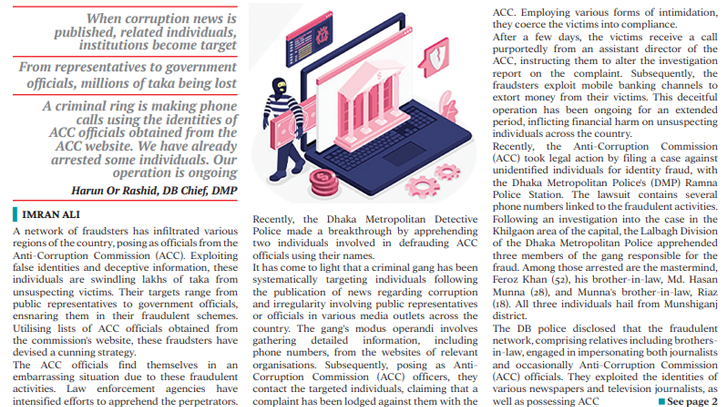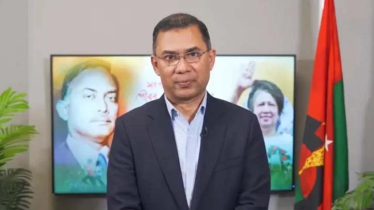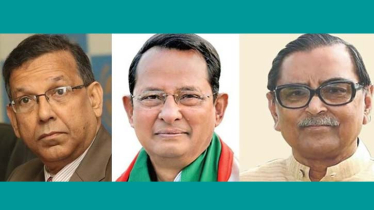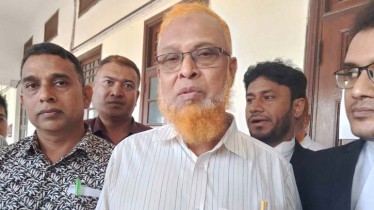
Photo : Messenger
A network of fraudsters has infiltrated various regions of the country, posing as officials from the Anti-Corruption Commission (ACC). Exploiting false identities and deceptive information, these individuals are swindling lakhs of taka from unsuspecting victims. Their targets range from public representatives to government officials, ensnaring them in their fraudulent schemes. Utilising lists of ACC officials obtained from the commission's website, these fraudsters have devised a cunning strategy.
The ACC officials find themselves in an embarrassing situation due to these fraudulent activities. Law enforcement agencies have intensified efforts to apprehend the perpetrators. Recently, the Dhaka Metropolitan Detective Police made a breakthrough by apprehending two individuals involved in defrauding ACC officials using their names.
It has come to light that a criminal gang has been systematically targeting individuals following the publication of news regarding corruption and irregularity involving public representatives or officials in various media outlets across the country. The gang's modus operandi involves gathering detailed information, including phone numbers, from the websites of relevant organisations. Subsequently, posing as Anti-Corruption Commission (ACC) officers, they contact the targeted individuals, claiming that a complaint has been lodged against them with the ACC. Employing various forms of intimidation, they coerce the victims into compliance.
After a few days, the victims receive a call purportedly from an assistant director of the ACC, instructing them to alter the investigation report on the complaint. Subsequently, the fraudsters exploit mobile banking channels to extort money from their victims. This deceitful operation has been ongoing for an extended period, inflicting financial harm on unsuspecting individuals across the country.
Recently, the Anti-Corruption Commission (ACC) took legal action by filing a case against unidentified individuals for identity fraud, with the Dhaka Metropolitan Police's (DMP) Ramna Police Station. The lawsuit contains several phone numbers linked to the fraudulent activities.
Following an investigation into the case in the Khilgaon area of the capital, the Lalbagh Division of the Dhaka Metropolitan Police apprehended three members of the gang responsible for the fraud. Among those arrested are the mastermind, Feroz Khan (52), his brother-in-law, Md. Hasan Munna (28), and Munna's brother-in-law, Riaz (18). All three individuals hail from Munshiganj district.
The DB police disclosed that the fraudulent network, comprising relatives including brothers-in-law, engaged in impersonating both journalists and occasionally Anti-Corruption Commission (ACC) officials. They exploited the identities of various newspapers and television journalists, as well as possessing ACC officials' identity cards. During the operation, law enforcement authorities recovered a significant cache of items from the group, including numerous journalists' visiting cards, ID cards, along with 11 mobile phones of various models, 29 SIM cards from different operators, and fake ACC officials' identity cards.
Mohammad Harun Or Rashid, the chief of the Dhaka Metropolitan Police Detective Branch (DB), revealed that an organised gang had been operating for a considerable period. Initially, they would acquire information regarding corruption allegations against officials from diverse institutions, such as upazila chairmen, mayors, and ward commissioners. They would then impersonate journalists and assistant directors of the Anti-Corruption Commission (ACC).
Subsequently, the gang would access the names and mobile numbers of the accused individuals from the websites of the respective organisations. They would then engage in various discussions, posing as journalists, assuring that they would report the news under their journalist guise and resolve the matter.
Following these interactions, the impostor posing as an ACC officer would contact the victim and proceed to extort money through mobile banking, falsely claiming that the investigation report needed to be altered.
Regarding the fraudsters apprehended by the detective police, Harun Or Rashid disclosed that they had utilised identity cards belonging to senior crime reporters from various media outlets. These included senior crime reporters from NTV, SATV, as well as several other television channels and newspapers.
The DB chief further mentioned that information regarding the six SIM card numbers mentioned by the ACC is documented in the case filed at Ramna police station. During the raid, three SIM cards were recovered from the fraudsters, which they had utilised in their deception involving the ACC's identity. The arrested individuals are currently on a four-day remand, and investigations into their fraudulent activities are ongoing.
Additionally, the DB chief highlighted that there are several cases of extortion filed against them, where they impersonated various news organisations, including the ACC.
In response to these developments, ACC Public Relations Deputy Director Aktarul Islam expressed regret over the fraudulent use of ACC officials' names by the impostors. Subsequently, a case was filed in this regard, leading to the arrest of the perpetrators by the Metropolitan Detective Police.
He emphasised that if anyone encounters individuals falsely claiming to be from the ACC and engaging in criminal activities such as extortion, they should immediately contact the ACC hotline number, the nearest ACC office, or law enforcement agencies.
Furthermore, it is noteworthy that these fraudsters are not limited to urban areas; their fraudulent activities have expanded nationwide. Most recently, a public representative in the northern district of Rajshahi fell victim to their deceitful schemes.
On the condition of anonymity, the public representative revealed that a senior officer of the ACC contacted him regarding the matter. Initially, the officer informed him that he would receive a notice to appear at the ACC's Dhaka office, and if he preferred not to comply, a monetary demand was made. Initially hesitant to pay, the public representative eventually engaged with them and provided money to prevent any potential repercussions. However, upon attempting to contact them the following day, their number was found to be inactive, leading to the realisation that they were fraudulent.
The public representative expressed his intention to take legal action in response to this incident.
Messenger/Fameema








